Climate transition plan
Achieve your climate goals with cost-effective investment, procurement, and operational planning
We combine the leading digital industrial transformation planning tool, decide, with the technical expertise of our consultants to find the most economical decarbonization pathways for your organization – from individual sites to the entire group.
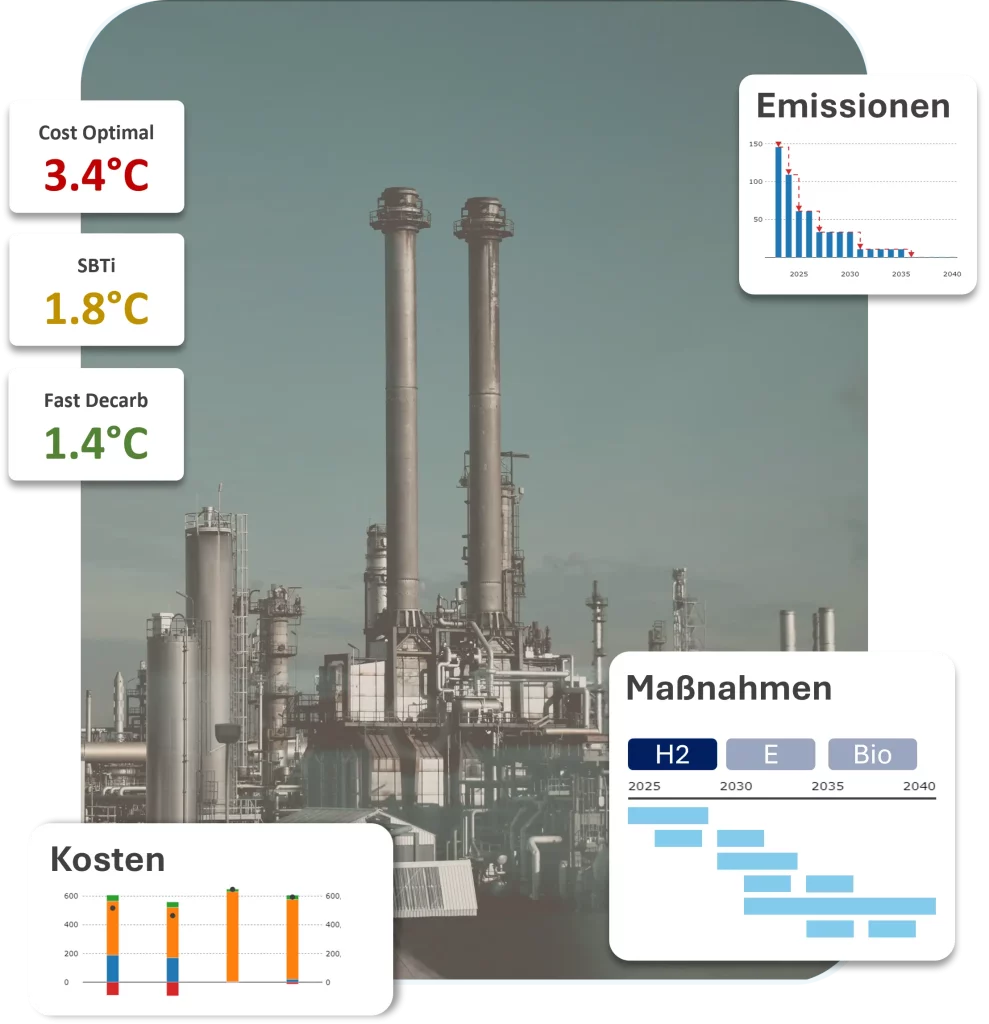
Challenges
Decision-makers are faced with the major challenge of implementing climate targets economically.
Regulatory requirements are increasing, making the 1.5°C compatible mitigation pathway a critical part of the CSRD. Failure to comply can result in significant fines and reputational damage. Economic transformation is only possible if the entire solution space is considered. Alternative production routes, energy efficiency measures, sector coupling, energy conversion and energy procurement must be developed as part of a holistic strategy. The individual fields of action are closely interlinked through technical, economic and ecological interactions. At the same time, the regulatory framework is evolving dynamically and energy market developments are subject to great uncertainty.
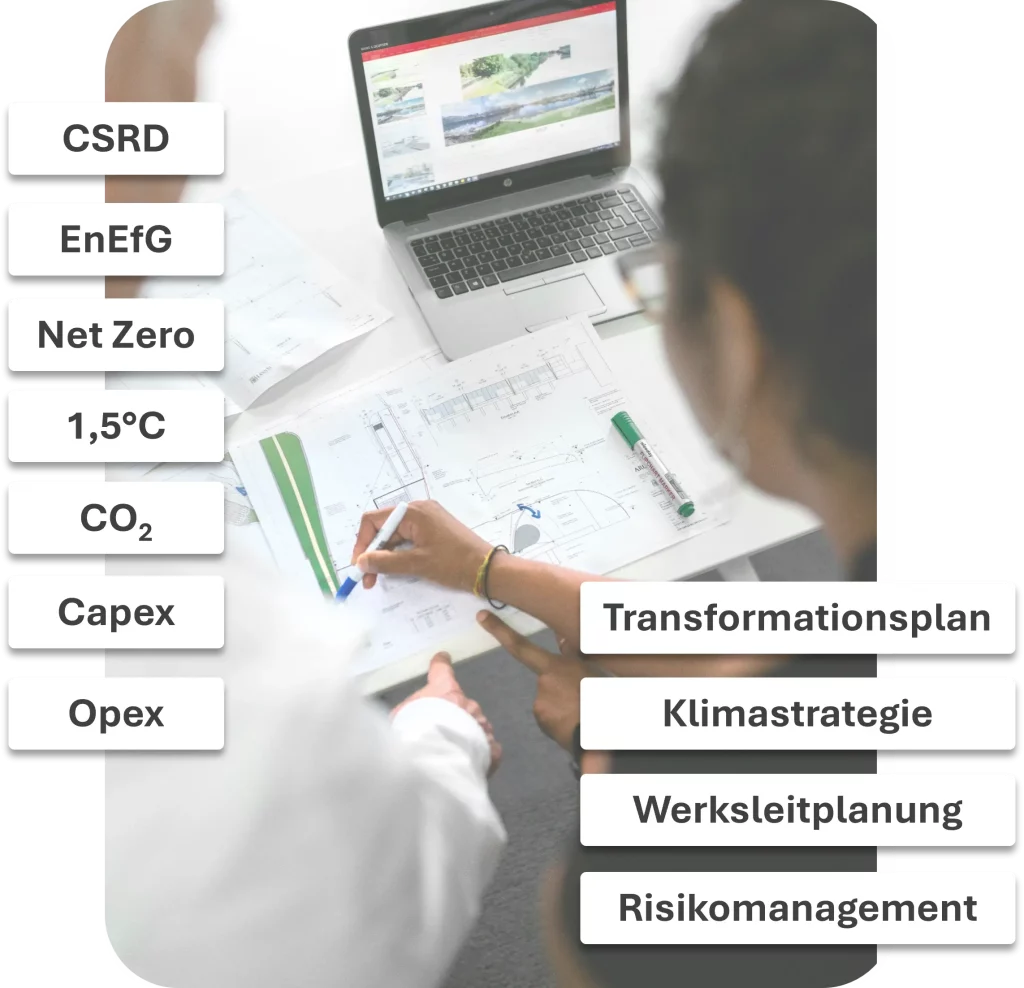
The Path to Zero climate transition plan identifies your cost-optimal climate strategy
Our algorithms search your solution space, balance emissions, Capex and Opex, and help you derive strategies from individual sites to the entire corporate group.
How it works
Step 1
Define objectives and record location factors
In the kick-off workshop, you work with our experts to derive transformation goals from your corporate objectives. We record location potentials, existing portfolios of measures and define data requirements.
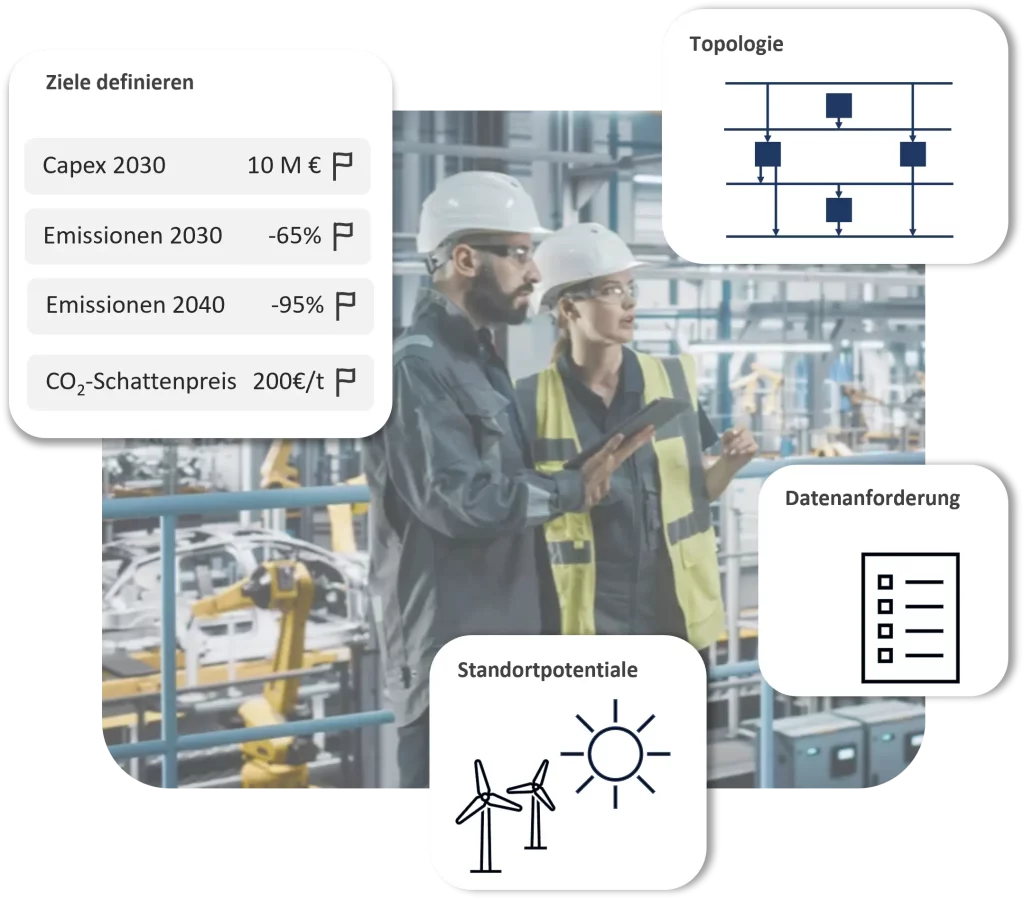
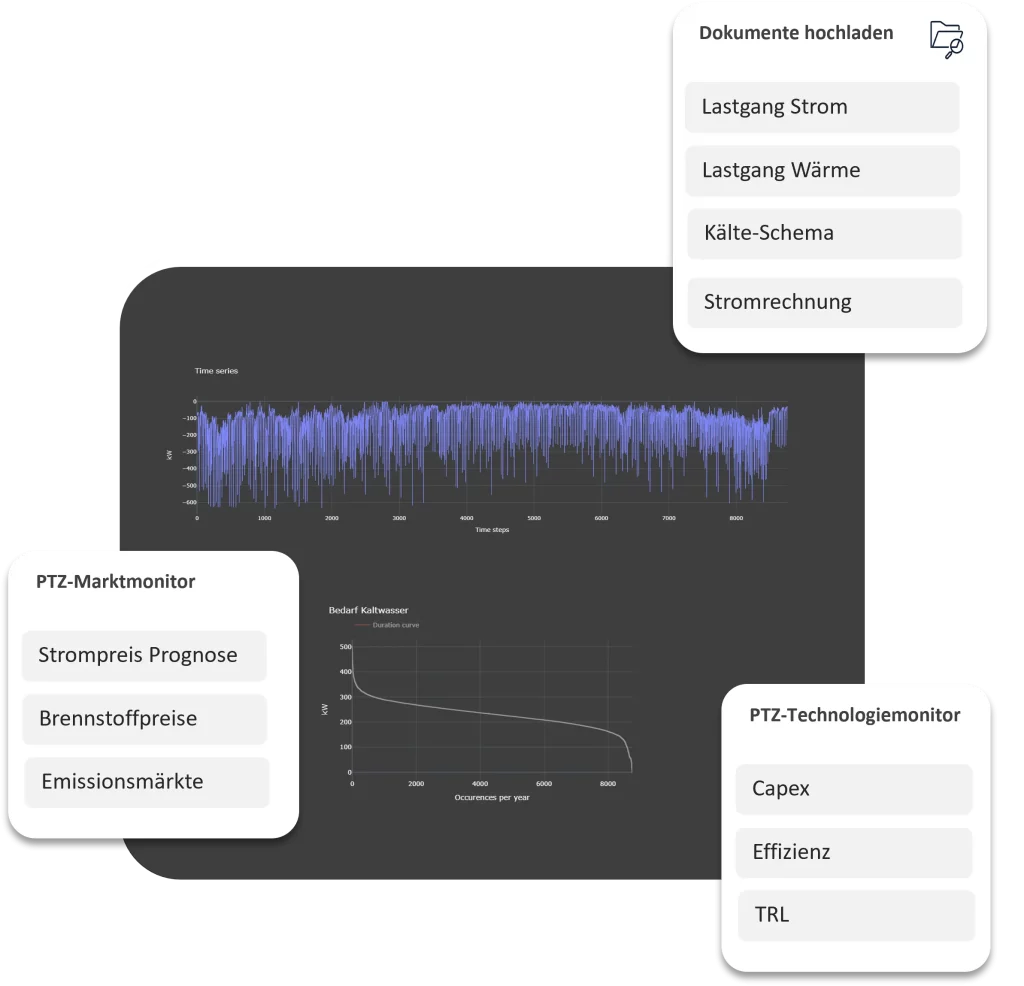
Step 2
Simple data transmission and data enhancement with the PTZ algorithms
You can easily provide your data using our data upload function. Alternatively, we can retrieve your data from your energy management interface.
We know that data availability and data quality can be limited. Our simulation tools help to fill data gaps and provide benchmarks using standard load curves.
We enrich the data with current market data and integrate the latest market forecasts from our electricity market model inform.
Step 3
Our tool decide takes into account all technical, economic and environmental inter-dependencies
Our transformation planning tool decide considers all relevant interdependencies and simulates your system with hourly steps until 2050.
Identify synergy effects and consistently avoid stranded assets with our scenario-based analyses.
Analyze alternative strategies in the Scenario Explorer.
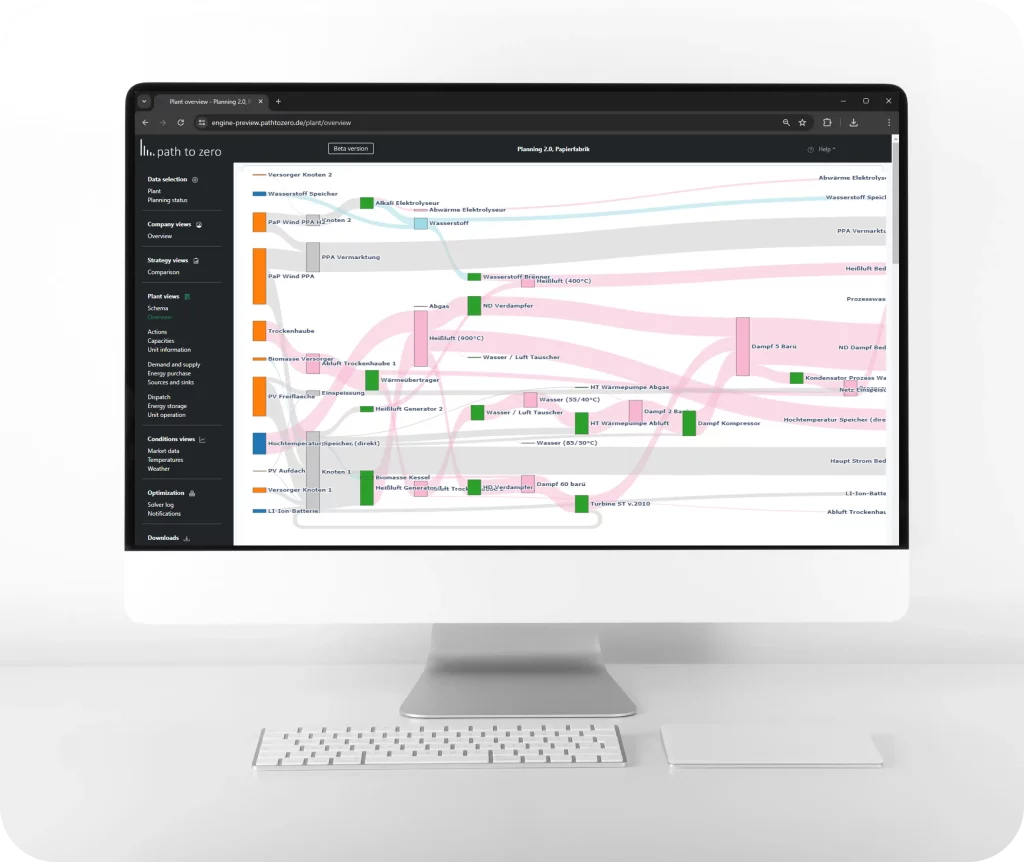
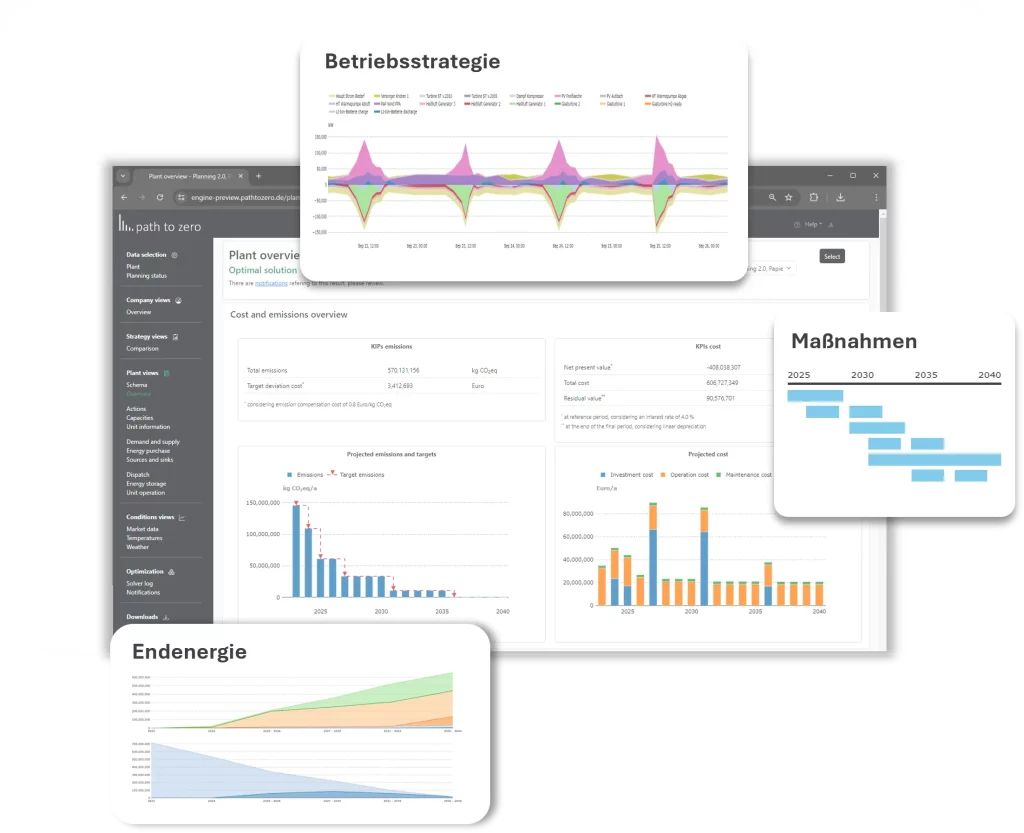
Step 4
Path to Zero algorithms calculate the cost-optimized path to achieve your climate targets
decide kombiniert Ihre standortspezifischen Randbedingungen mit der Datengrundlage unserer Technologiedatenbank und aktuelle Marktdaten aus unserem Marktmodul inform.
Our algorithms search the solution space in a structured way to find the portfolio that meets your climate goals at the lowest cost. Calculate investment paths, trade strategies, and derive operational strategies to manage your assets.
Step 5
Use the decide Scenario Explorer to evaluate individual strategies, reduction paths and market scenarios
We use our Scenario Explorer to analyze different technical solution spaces. We evaluate the costs of different ambitious CO2 reduction paths and forecast the performance of your strategy under different market scenarios. This allows you to balance Capex, Opex, emissions and your risks to find a robust strategy for your site.
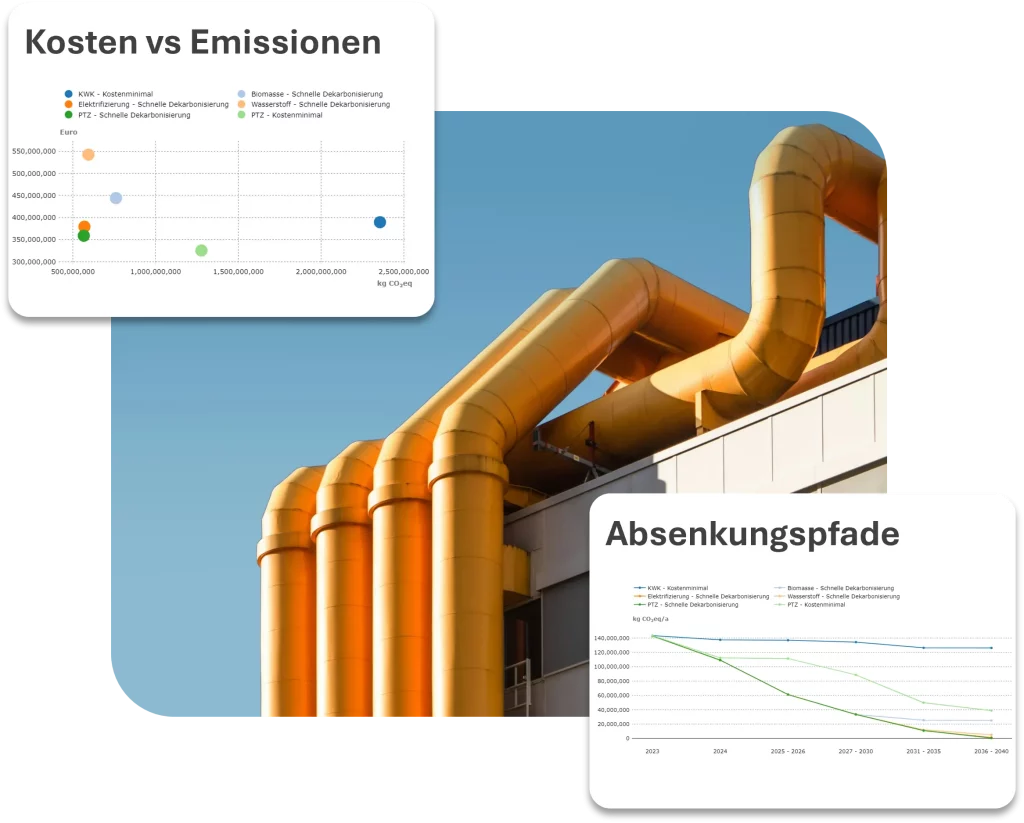

Step 6
Group-wide portfolio management and continuous climate management
Our climate transition plan culminates in the introduction of climate management. In addition to a detailed report and all data available for download in Excel format, we provide you with a complete digital representation of your site. When market conditions change, new regulations arise, or new internal planning assumptions are introduced, you can quickly adapt your planning and remain capable of acting even in dynamic developments.
The site is automatically integrated into the group-wide portfolio optimization. Compare CO2 abatement costs across all sites and allocate investment budgets for maximum impact. This way, you can monitor and manage the group-wide transformation.
Which areas of action are taken into account?
A cost-efficient decarbonization strategy leverages potentials across all areas of action. We develop our strategies holistically and capture economic and technical interrelationships with our tools. This way, we find the most cost-effective path for your decarbonization.

Energy efficiency
Increasing energy efficiency by optimizing processes and using efficient technology.

Sector coupling
Efficient provision and storage of electricity, heat, and cooling through the decentralized energy supply system.

Renewable energy
Building a balanced renewable generation portfolio both on and off production sites.

Production
Switching production to alternative production processes and energy sources. Consistent process integration.

Energy procurement
Procuring renewable energy, guarantees of origin, and emission certificates through a balanced procurement portfolio.

Flexibility
Increasing self-consumption, optimizing grid fees, and participating in spot and balancing power markets.
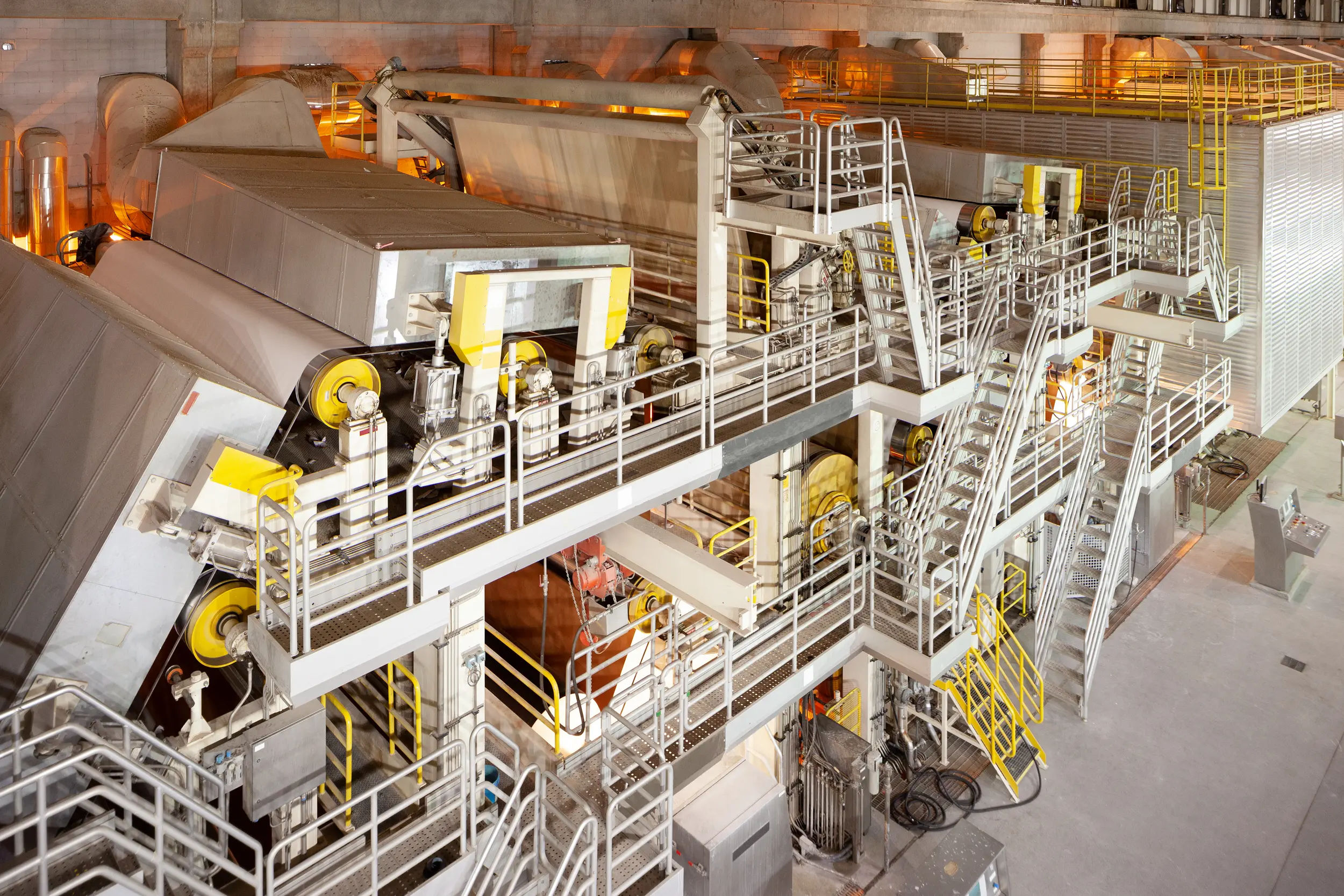
Case study
Decarbonization of the
paper industry
Key technologies, transformation strategies and practical case studies
#CSRD, #1,5°C-Pathways, #CarbonZero
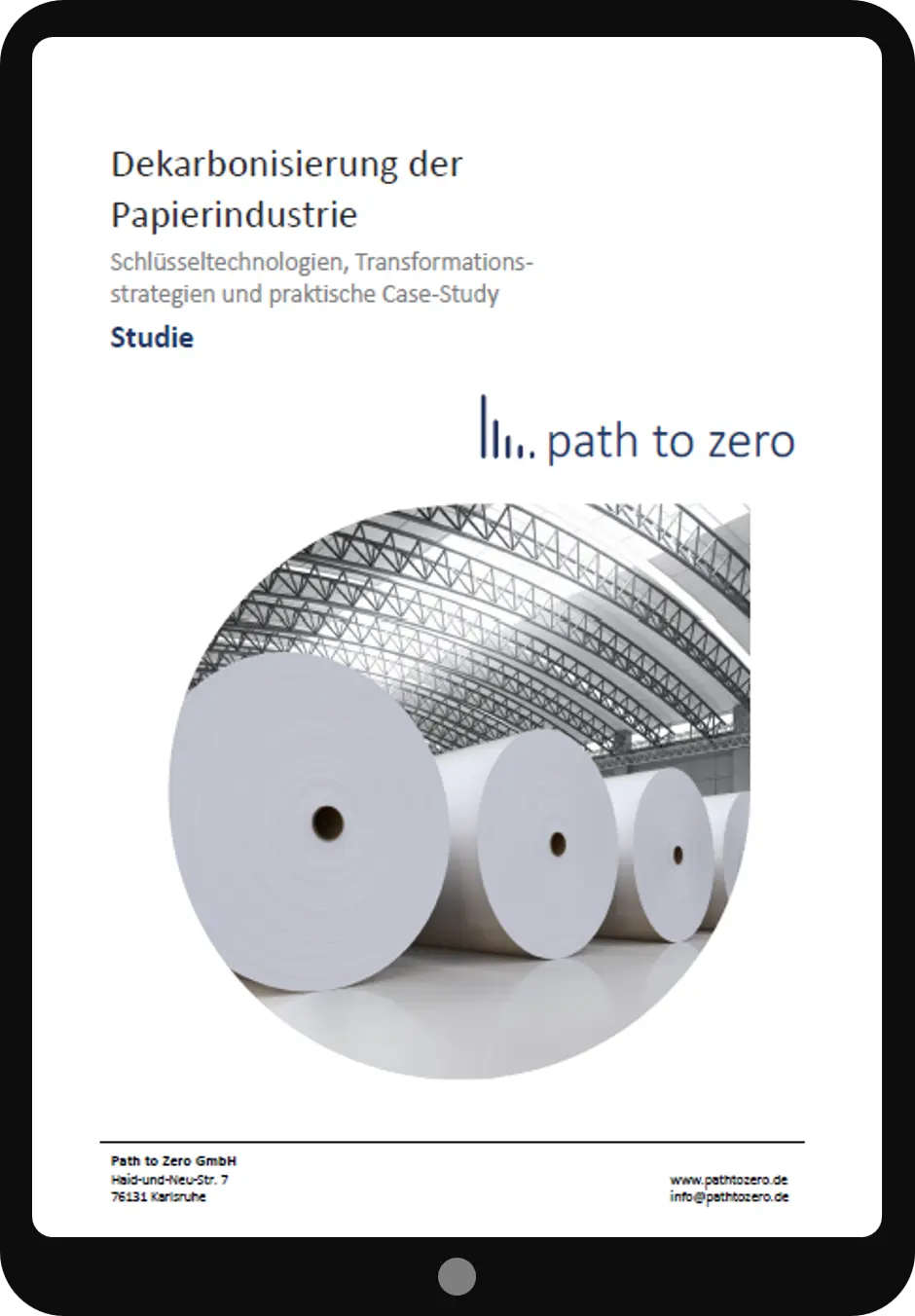
Up to 70% funding for transformation plans from BAFA (Federal Office for Economic Affairs and Export Control).
The Federal Ministry for Economic Affairs and Climate Action supports companies in their transformation towards climate neutrality through the Energy and Resource Efficiency in Business program. The BAFA Module 5 Transformation Plan assists in deriving long-term emission reduction pathways.
The funding program supports companies in developing their concepts with up to €60,000. The funding rate is 40% of the costs for large enterprises, 50% for medium-sized enterprises, and 60% for small enterprises.
Participation in a network of the Initiative for Energy Efficiency and Climate Protection Networks (IEEKN) increases the funding rate by 10% and the maximum funding grant to €90,000.
Contact our experts
Let us work together to find out how our tools can help you achieve your emissions goals in a cost-effective way.
